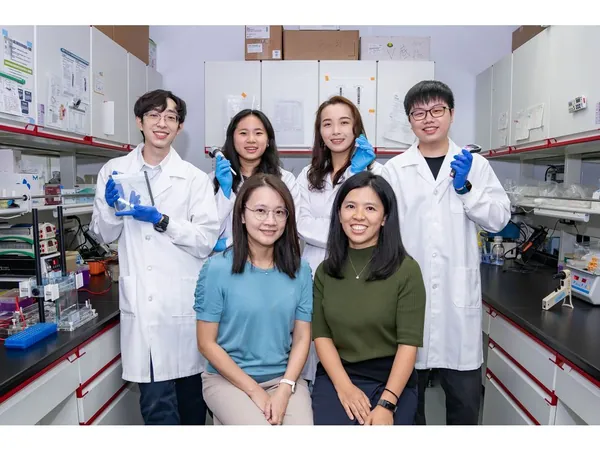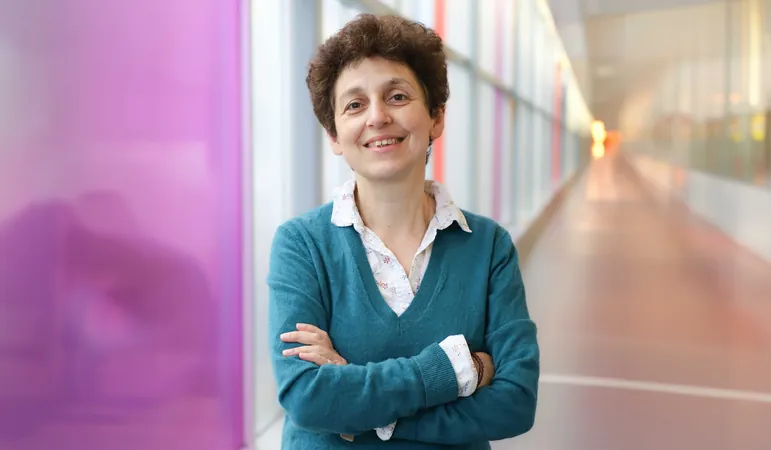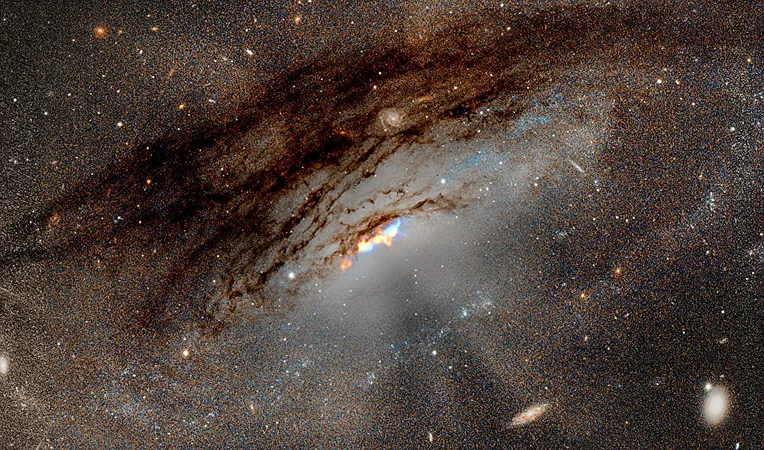
Groundbreaking Research Reveals How Cancer Cells Exploit Sugar for Rapid Growth
2024-12-19
Author: Amelia
Groundbreaking Research Reveals How Cancer Cells Exploit Sugar for Rapid Growth
In an astonishing breakthrough, researchers at National Tsing Hua University (NTHU) in Taiwan have finally uncovered the molecular mechanisms behind cancer cells' insatiable appetite for glucose, a question that has perplexed scientists for nearly a century. Associate Professors Kai-Ti Lin and Hui-Chun Cheng led this vital study, which has been published in the esteemed journal *Nature Communications*.
Historical Context
Historically, the phenomenon of cancer cells preferring glucose over oxygen to generate energy was first noted by German scientist Otto H. Warburg in the early 20th century, famously known as the Warburg Effect. While normal cells typically utilize oxygen for energy, Warburg observed that cancer cells tend to rely on anaerobic glycolysis, even in oxygen-rich environments. This preference serves as a foundational process for synthesizing the building blocks essential for their rapid proliferation, including DNA and proteins.
The Role of Hydrogen Sulfide
But what drives cancer cells to exhibit such a preference? The answer lies in the newly discovered role of hydrogen sulfide, a gas secreted by cancer cells in hypoxic environments. Lin and Cheng found that this gas modifies the structure of a crucial protein known as pyruvate kinase (PKM2). This alteration prompts PKM2 to disassemble into smaller forms, allowing cancer cells to enhance glucose uptake dramatically, thus turbocharging tumor growth.
Metabolic Rerouting
Cheng vividly describes this process: “Just as a logistics system requires a barcode to deliver a package to its destination, hydrogen sulfide places a mark on specific locations on PKM2. This structural change effectively reroutes how cancer cells metabolize glucose.” This insight illuminates why targeting this mechanism could be key to restricting cancer growth.
Gene Editing Technology
Furthermore, the research employed cutting-edge gene editing technology to block the hydrogen sulfide modifications on PKM2. This approach ensured that PKM2 retains its original form, leading cancer cells to revert to aerobic respiration. Without the glucose-driven metabolism, tumors face a significant hindrance in their growth.
Preclinical Trials
In preclinical trials using mice, the research team successfully demonstrated that their interventions could effectively suppress breast cancer tumor growth. “Our goal now is to translate these findings into a new therapeutic strategy,” Lin expressed.
Collaborative Efforts
The groundbreaking study also benefited from contributions by Distinguished Professor Wen-Ching Wang and Professor Lily Wang, who provided essential materials and microscopic analysis, respectively. Their collective efforts highlight the collaborative spirit prevalent at NTHU.
Future Implications
This discovery opens up new avenues for cancer treatments, potentially leading to innovative therapies that could significantly improve outcomes for cancer patients worldwide. As researchers continue to decode the complexities of cancer biology, the hope is to translate these findings into effective clinical applications that will change the paradigm of cancer treatment forever.









 Brasil (PT)
Brasil (PT)
 Canada (EN)
Canada (EN)
 Chile (ES)
Chile (ES)
 España (ES)
España (ES)
 France (FR)
France (FR)
 Hong Kong (EN)
Hong Kong (EN)
 Italia (IT)
Italia (IT)
 日本 (JA)
日本 (JA)
 Magyarország (HU)
Magyarország (HU)
 Norge (NO)
Norge (NO)
 Polska (PL)
Polska (PL)
 Schweiz (DE)
Schweiz (DE)
 Singapore (EN)
Singapore (EN)
 Sverige (SV)
Sverige (SV)
 Suomi (FI)
Suomi (FI)
 Türkiye (TR)
Türkiye (TR)